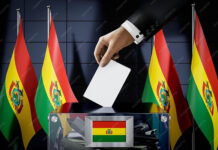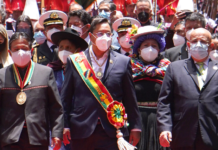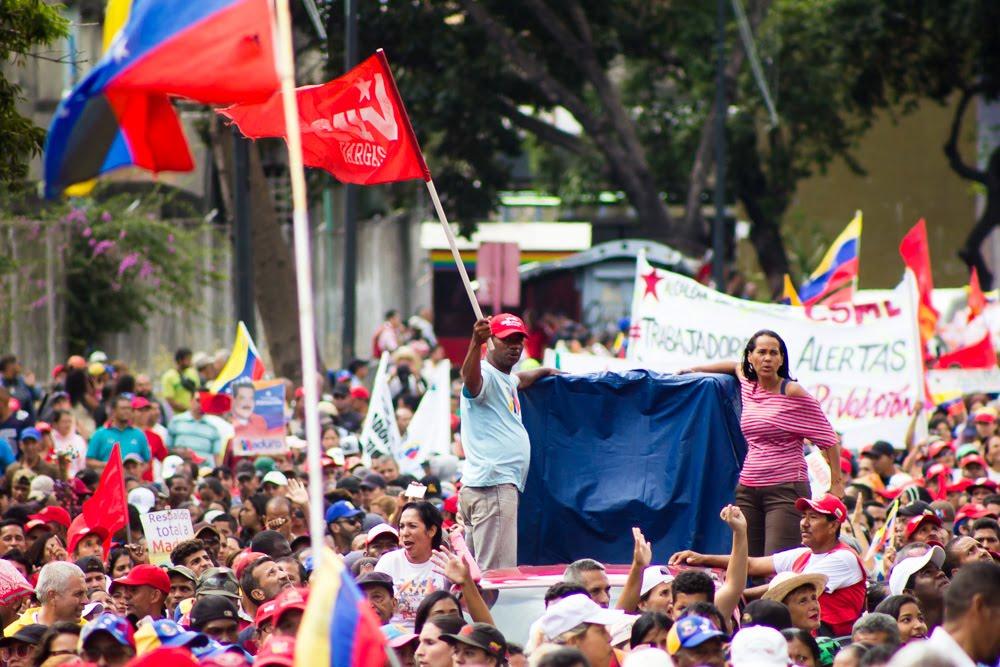
Revolution Has Survived and Flourished Despite U.S. Attempts to Destroy It
February 2 marked the 25th anniversary of the Bolivarian Revolution. On that day in 1999, Hugo Chávez, a left-wing Venezuelan army officer, assumed power and initiated a socialist revolution that had ripple effects across the region and world.
Invoking the legacy of Simón Bolívar, who had led much of Latin America’s liberation from Spanish colonization in the 1820s, Chávez’s government enacted measures to retake national control over Venezuela’s oil resources and to use the revenues to fund social programs.
The government led by Chávez also strove for greater regional integration to undercut dependance on exploitation by the U.S. and provided a model for Third World nations striving to overcome a legacy of colonialism and neo-colonialism.
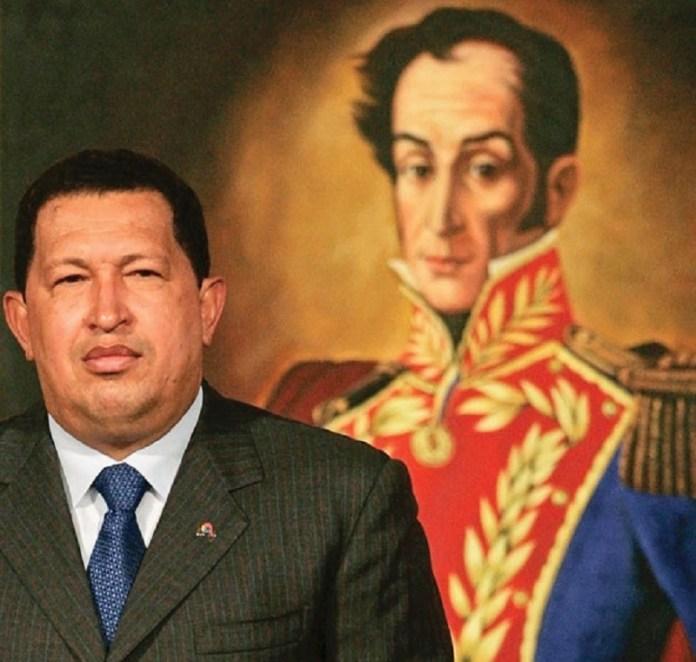
On February 4, Venezuela Analysis and the Orinoco Tribune hosted a webinar assessing the legacy of the Bolivarian Revolution, which has consistently been misrepresented in U.S. media.
Carlos L. Garrido, a philosophy lecturer and Ph.D. candidate at Southern Illinois University, Carbondale, and member of the editorial board of Midwestern Marx, opened the webinar by stating that the Bolivarian Revolution was a monumental historical event that brought the working class to power and inspired the rebirth of left-wing movements in Latin America.
The U.S. predictably used the entire tool kit of its weaponry to try to sabotage and destroy the revolution, kidnapping Venezuelan leaders, mounting coups, and imposing draconian sanctions that have failed to dislodge the Venezuelan government or crush the spirit of the revolution.

The first featured speaker, Eddie Liger Smith, is an Olympic hopeful in wrestling who is also on the editorial board at Midwestern Marx.
Liger Smith recounted his experience in college in the decade of the 2000s when his microeconomics teacher, the chairwoman of the local Republican Party, told his class that socialism always failed and that students should look at Venezuela as a reflection of that failure.
When Liger Smith asked the professor about the impact of U.S. sanctions on Venezuela, the professor said that the sanctions had no effect and that the country’s economy failed because of socialism.
When Liger Smith pressed further, asking the professor why the U.S. imposed sanctions if socialism was a failed system, the professor’s face turned red and she gave a convoluted answer.
Liger Smith said that, on that day, he decided to try to undertake his own objective study of Venezuela to find out the truth for himself.
When he undertook that study, Liger Smith said he found out that the Bolivarian Revolution was not a failure but a great success, and that socialism was a more humane and superior system to capitalism.
The primary success of the Bolivarian Revolution was that Venezuelans were able to regain control of their economy and oil that had been for years stolen by Western corporations.
Chávez’s government and that run by his successor Nicolás Maduro improved the material conditions of the majority of the country’s people by using oil and other revenue to a) increase popular access to affordable health care and education; b) build schools; c) reduce inequality and malnutrition; and d) establish pensions for the elderly.[1]
Further, the Bolivarian Revolution introduced new forms of popular democracy and helped to combat anti-indigenous racism.
The reason that Venezuela is so widely demonized is because it has come to function as a thorn in the side of Western capitalism and U.S. imperialism; it is a country that the U.S. ruling elite cannot control or exploit and which has adopted an independent foreign policy.
U.S. sabotage efforts—which Liger Smith said include efforts to lure skilled workers out of the country and steal Venezuelan assets—ultimately cannot and will not succeed because Venezuelans do not want to go to a past era where they lacked true independence.
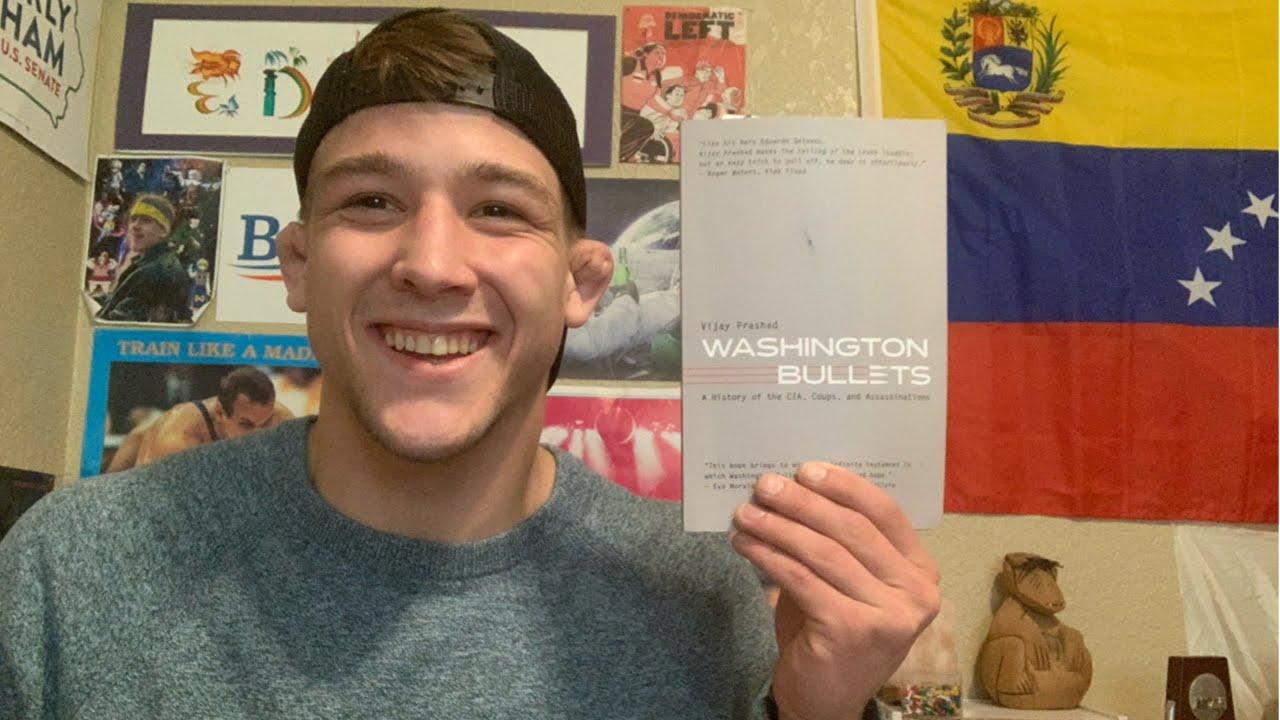
The second webinar speaker, Cira Pasqual Marquina, a professor of political science at the Universidad Bolivariana de Venezuela in Caracas, spoke about the significance of communes to the Venezuelan revolution and how those communes embody its egalitarian values and push for participatory democracy.
Marquina said that the communes draw on some of the living practices of Venezuela’s indigenous population, and Soviet and Chinese communes as well as the 1871 Paris Commune that Karl Marx wrote about.
Marquina said also that, when Chávez came to power, he invited people to read a Hungarian philosopher, István Mészáros, who wrote about some of the accomplishments and failures of Eastern Bloc socialism which Venezuelans could learn from, emphasizing the need for popular participation in decision-making.
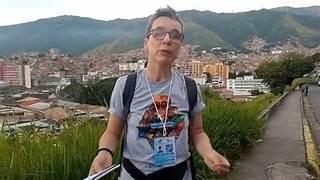
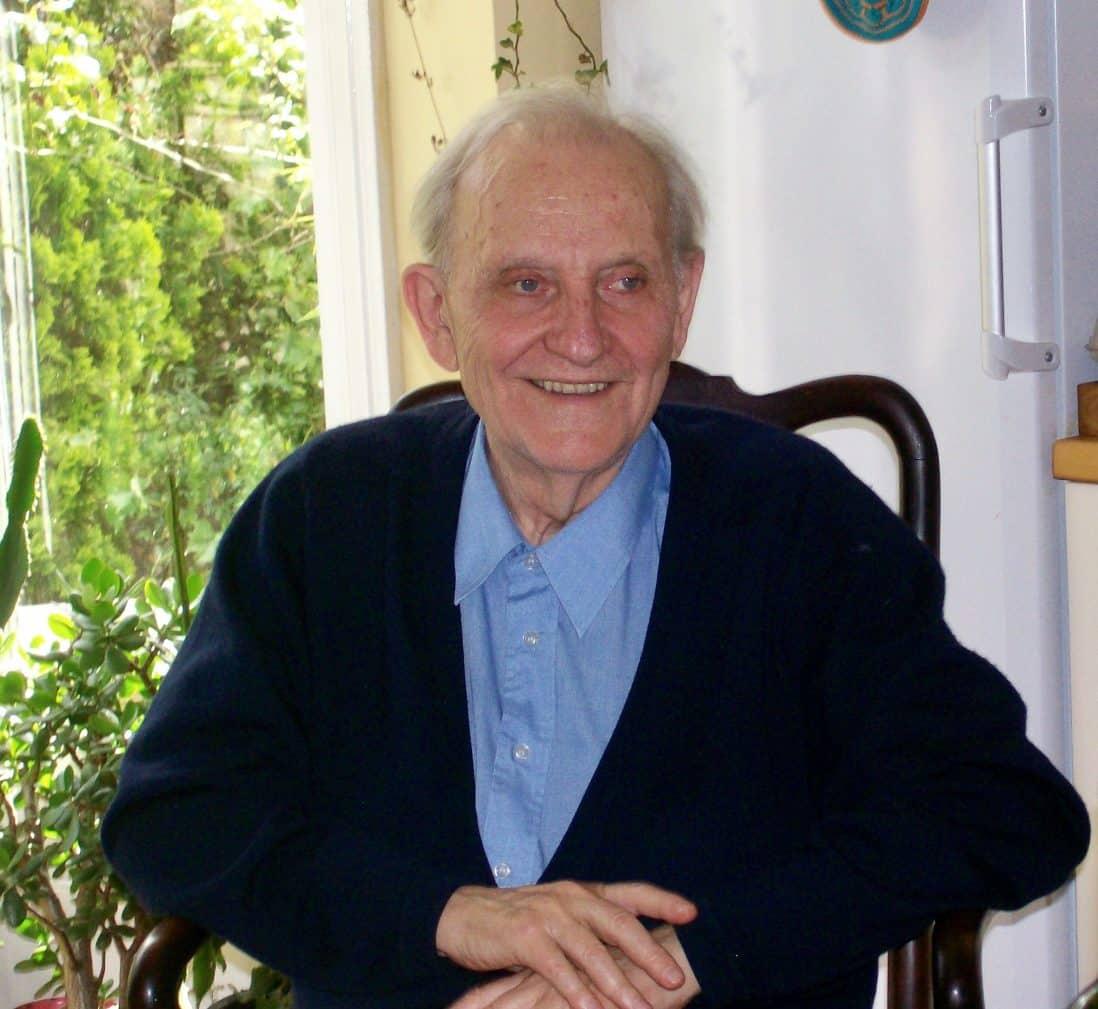

The third speaker, Saheli Chowdhury, an editor of the Orinoco Tribune, emphasized that the Bolivarian Revolution occurred during a dark time following the collapse of the Soviet Union when the U.S. was imposing neo-liberalism everywhere—a harsh economic model that fueled vast social inequality and misery for people across the so-called Third World.
The Bolivarian Revolution brought a ray of hope in that time, signifying decolonization and resistance to neo-liberalism and neo-colonialism and that a different world was possible.
In Latin America, it helped inspire a) the election of Evo Morales, a socialist who was the first Indigenous president of Bolivia; b) the return to power of the socialist Sandinistas in Nicaragua; and c) the rejection of the Free Trade Area of the Americas (FTAA) that had been pushed by the Clinton and Bush administrations.
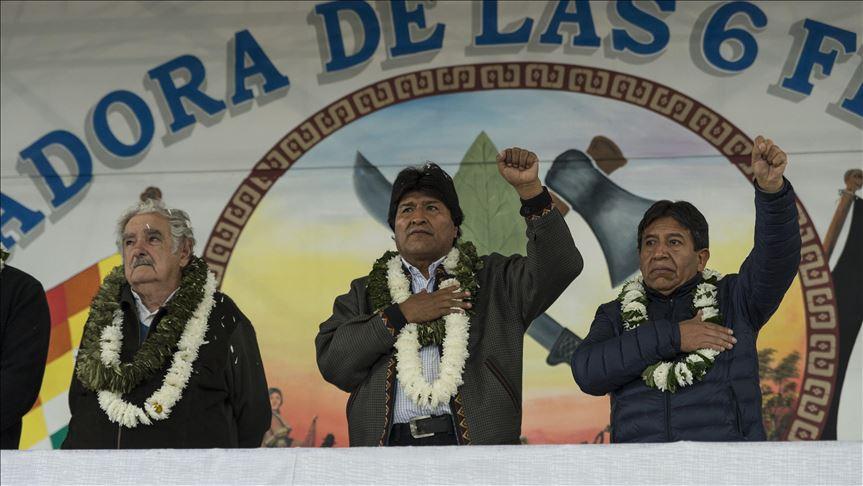
Chávez’s visionary policies were evident in his efforts to expand Venezuela’s ties to Asian countries and establishment of a strategic partnership with China and Iran as part of a coalition against the U.S. Empire.
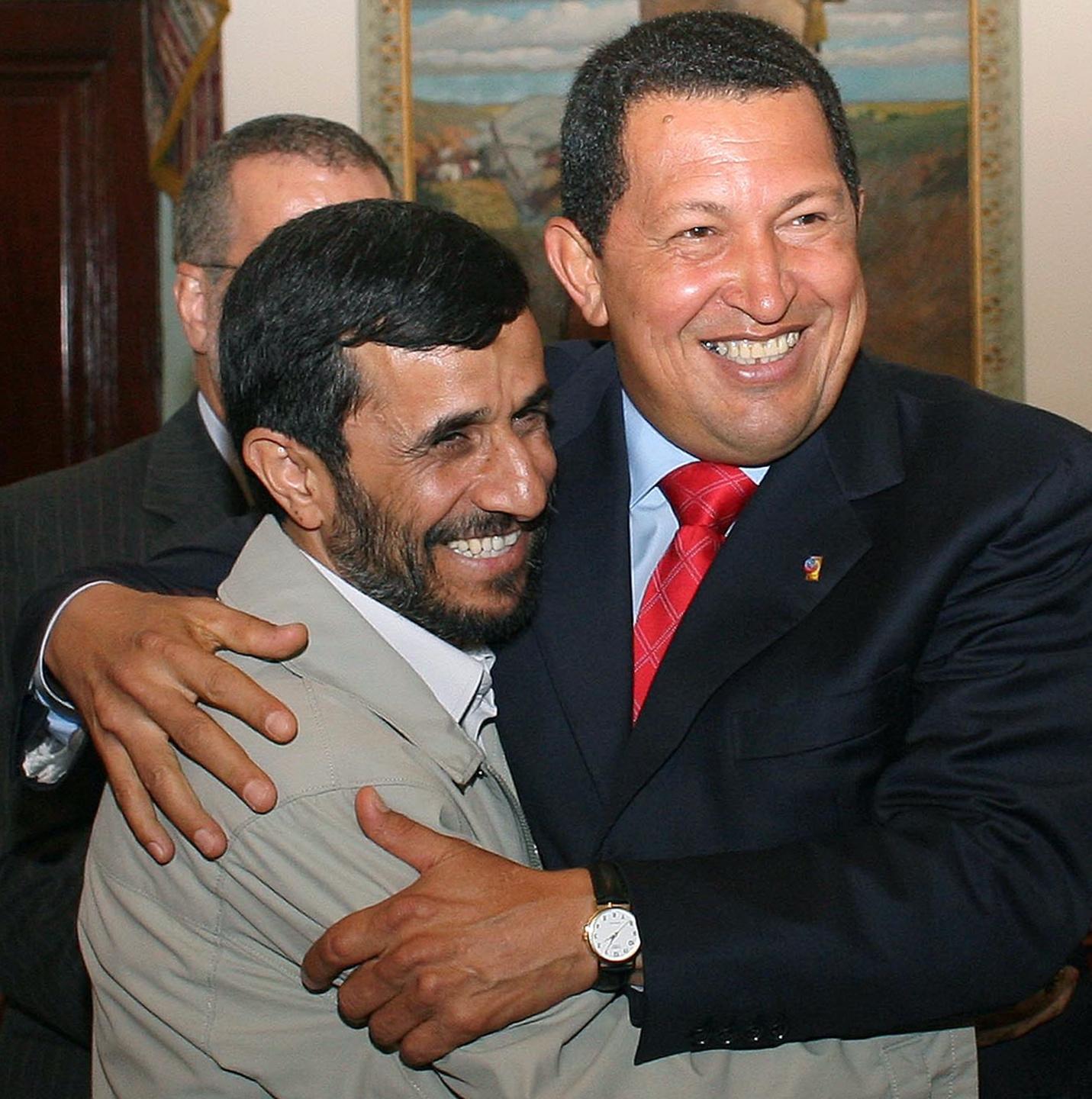
Chowdhury said that, in the 1990s, we were all told that history had ended and that capitalism had won, but the Bolivarian Revolution proves that history continues to be written by the people.
The fourth speaker, Jesus Rodriguez-Espinoza, founder of the Orinoco Tribune, emphasized that, for all the disparagement in the media and some genuine problems with Maduro’s rule, Chavismo remains the dominant political movement in Venezuela.
This is primarily because of its past achievements in empowering working class people and bringing them material benefits.

Rodriguez-Espinoza predicted that Maduro would win Venezuela’s next election because Chavismo is bigger than any one person and people will vote to sustain the revolution.
He also said that U.S. intelligence was recently behind a coup plot by far-right-wing activists who they were helping to arm.
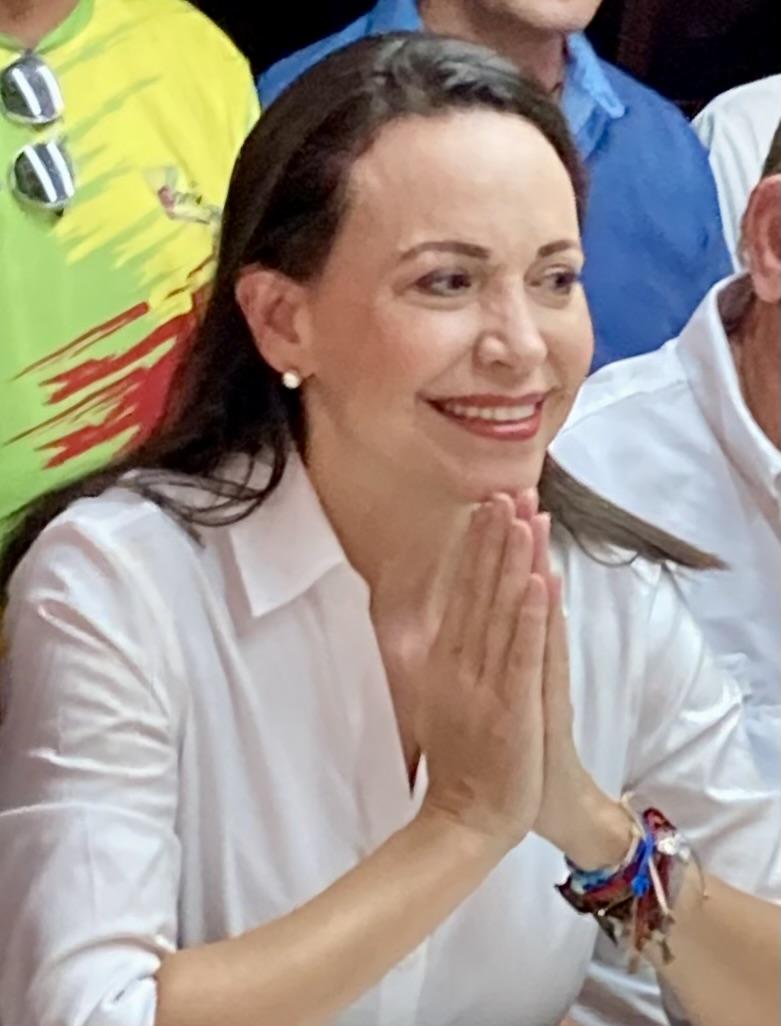
The final speaker, Danny Shaw, a professor at City University of New York who has traveled to Venezuela regularly, said that the U.S. media are currently displaying crocodile tears over the alleged persecution of opposition candidate María Corina Machado, who has been disqualified from running for public office.
Supported by House Foreign Affairs Committee chairman Maria Salazar (R-FL) of the Cuba lobby, Machado has only a small base in Venezuela among the extreme right and comes from one of the old oligarchic families that has been discredited.
An advocate of “open markets,” she is considered a traitor because of her support for U.S. sanctions and the violent overthrow of Venezuela’s government by a foreign power, and is as much of a joke as Juan Guaidó, a puppet of the U.S. who now teaches at Florida International University.
Shaw said that, “if Machado did what she did in the U.S.., she would be in jail.”[2]
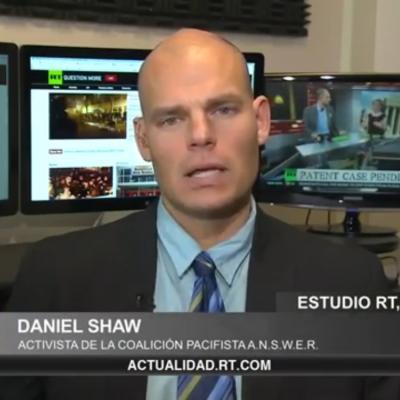
Shaw emphasized the ferocity of the U.S. hybrid war on Venezuela, a key component of which is an informational war.
According to Shaw, you will not read one positive thing about Venezuela in The New York Times or other capitalist media, which is committed to the destruction of the Bolivarian Revolution.
As an antidote, Shaw recommended Telesur, which was established with funding from the Chávez government in the 2000s as a “CNN of the oppressed.”
Telesur’s perspective is rightfully sympathetic to the Bolivarian Revolution, whose historic achievements will be recognized by historians years from now.

- Even The New York Times, in an article harshly critical of the current Venezuelan government, acknowledged that the socialist revolution overseen by Chávez and Nicolás Maduro “lifted many out of poverty.” Julie Turkwitz, Isayen Herrera and Genevieve Glotsky, “Maduro Critics Fear New Era of Repression,” The New York Times, February 15, 2024, A7. ↑
-
Roger Harris reported in Counterpunch that in 2002, Machado “signed the infamous Carmona Decree, establishing the short-lived coup government that temporarily deposed Hugo Chávez. Machado received amnesty for supporting that coup, but has continued to be associated in coup attempts. She was active in promoting the violent guarimbas in 2014 and 2017 to overthrow the elected government and has called for a US military invasion.” According to Harris, “in 2014, [Machado] was barred from running for public office, in accordance with the Venezuelan constitution, when she served as a diplomat for Panama in order to testify against Venezuela before the Organization of American States (OAS). She had initially refused to contest her barring before the supreme court (TSJ), which she regarded as illegitimate. But when Washington wanted to use her electoral disqualification as an excuse for reimposing some sanctions, she obediently complied. She lost her case and still remains barred.” In December, Mario Diaz-Balart (R-FL) introduced House Resolution 911 designating Machado as the “official presidential opposition candidate,” a blatant form of interference in the internal affairs of another country. Venezuelan sociologist Maria Paez Victor reported that Machado is “a hated figure among the people [of Venezuela] because of her enthusiastic support and plea for more sanctions that have caused such suffering.” ↑
CovertAction Magazine is made possible by subscriptions, orders and donations from readers like you.
Blow the Whistle on U.S. Imperialism
Click the whistle and donate
When you donate to CovertAction Magazine, you are supporting investigative journalism. Your contributions go directly to supporting the development, production, editing, and dissemination of the Magazine.
CovertAction Magazine does not receive corporate or government sponsorship. Yet, we hold a steadfast commitment to providing compensation for writers, editorial and technical support. Your support helps facilitate this compensation as well as increase the caliber of this work.
Please make a donation by clicking on the donate logo above and enter the amount and your credit or debit card information.
CovertAction Institute, Inc. (CAI) is a 501(c)(3) non-profit organization and your gift is tax-deductible for federal income purposes. CAI’s tax-exempt ID number is 87-2461683.
We sincerely thank you for your support.
Disclaimer: The contents of this article are the sole responsibility of the author(s). CovertAction Institute, Inc. (CAI), including its Board of Directors (BD), Editorial Board (EB), Advisory Board (AB), staff, volunteers and its projects (including CovertAction Magazine) are not responsible for any inaccurate or incorrect statement in this article. This article also does not necessarily represent the views the BD, the EB, the AB, staff, volunteers, or any members of its projects.
Differing viewpoints: CAM publishes articles with differing viewpoints in an effort to nurture vibrant debate and thoughtful critical analysis. Feel free to comment on the articles in the comment section and/or send your letters to the Editors, which we will publish in the Letters column.
Copyrighted Material: This web site may contain copyrighted material the use of which has not always been specifically authorized by the copyright owner. As a not-for-profit charitable organization incorporated in the State of New York, we are making such material available in an effort to advance the understanding of humanity’s problems and hopefully to help find solutions for those problems. We believe this constitutes a ‘fair use’ of any such copyrighted material as provided for in section 107 of the US Copyright Law. You can read more about ‘fair use’ and US Copyright Law at the Legal Information Institute of Cornell Law School.
Republishing: CovertAction Magazine (CAM) grants permission to cross-post CAM articles on not-for-profit community internet sites as long as the source is acknowledged together with a hyperlink to the original CovertAction Magazine article. Also, kindly let us know at info@CovertActionMagazine.com. For publication of CAM articles in print or other forms including commercial internet sites, contact: info@CovertActionMagazine.com.
By using this site, you agree to these terms above.
About the Author

Jeremy Kuzmarov holds a Ph.D. in American history from Brandeis University and has taught at numerous colleges across the United States. He is regularly sought out as an expert on U.S. history and politics for radio and TV programs and co-hosts a radio show on New York Public Radio and on Progressive Radio News Network called “Uncontrolled Opposition.”
He is Managing Editor of CovertAction Magazine and is the author of six books on U.S. foreign policy, including Obama’s Unending Wars (Clarity Press, 2019), The Russians Are Coming, Again, with John Marciano (Monthly Review Press, 2018), Warmonger. How Clinton’s Malign Foreign Policy Launched the U.S. Trajectory From Bush II to Biden (Clarity Press, 2023); and with Dan Kovalik, Syria: Anatomy of Regime Change (Baraka Books, 2025).
Besides these books, Kuzmarov has published hundreds of articles and contributed to numerous edited volumes, including one in the prestigious Oxford History of Counterinsurgency .
He can be reached at jkuzmarov2@gmail.com and found on substack here.

